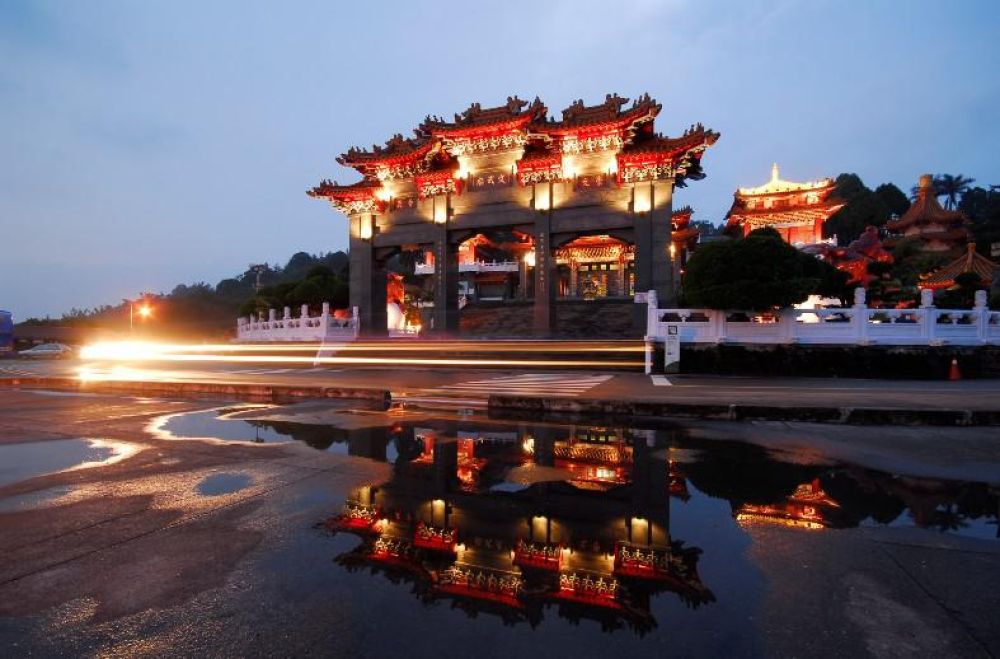

Located on the perimeter of the picturesque Sun Moon Lake in Nantou County, Wenwu Temple is a prominent historical and cultural landmark, attracting numerous domestic and international tourists throughout the years. Wenwu Temple, which means "Temple of Literature and Martial Arts," is a testament to both the spiritual and scholarly pursuits in Chinese culture.
The Wenwu Temple was constructed in 1938, after the rising waters of the lake due to the construction of a hydroelectric power plant led to the merging of two earlier temples, Longfeng Temple and Ihuatang of Shuishotsun. These temples were dedicated to the civil and the military deities. The consolidation into the Wenwu Temple was not only a solution to the challenge posed by the power plant but also a new beginning, symbolizing the unity of spiritual beliefs.
The architecture of Wenwu Temple is magnificent, showcasing the traditional Chinese palatial design with grand staircases, vast courtyards, and intricate carvings that catch the eye. It is dedicated to Confucius (the God of Literature) and Guan Yu (the God of War), encompassing the intellectual and martial aspects revered in Chinese tradition.
Tourism at Wenwu Temple has evolved significantly over the years. Initially serving as a local place of worship, its fortune shifted dramatically with the development of Taiwan's tourism industry. The government of Taiwan, recognizing the potential within Nantou's natural and cultural heritage, invested in enhancing infrastructure, improving accessibility, and promoting the area's attractions.
As tourism trends shifted towards cultural explorations, Wenwu Temple became a focal point for tourists seeking to understand the Chinese-Taiwanese heritage. The temple's expansive views of Sun Moon Lake and its grandiose setting have also been instrumental in its appeal to visitors seeking both spiritual and aesthetic pleasure.
Today, Wenwu Temple adapts to modern tourism demands by offering a culturally rich experience that incorporates traditional festivals, ceremonies, and educational tours. With the increased popularity of eco-tourism and sustainable travel, Sun Moon Lake and its surroundings, including Wenwu Temple, emphasize the importance of preserving nature while allowing visitors to appreciate the cultural significance of the area.
Innovative tourism strategies have also been implemented, such as digital guides and augmented reality experiences that allow visitors to engage with the temple's rich history interactively. Souvenir shops and local food vendors surrounding the temple provide an economic boost to the community while enriching the tourist experience with local crafts and cuisines.
To meet the international standards and attract a diverse range of tourists, information around Wenwu Temple is provided in multiple languages, and facilities are regularly updated to ensure accessibility for all visitors.
Wenwu Temple's journey from a local religious site to a renowned tourist attraction encapsulates the broader growth of Taiwan's tourism sector. By blending the ancestral traditions with contemporary amenities and services, Wenwu Temple remains a prestigious cultural destination, demonstrating how historical attractions can successfully transition into modern tourism hubs.